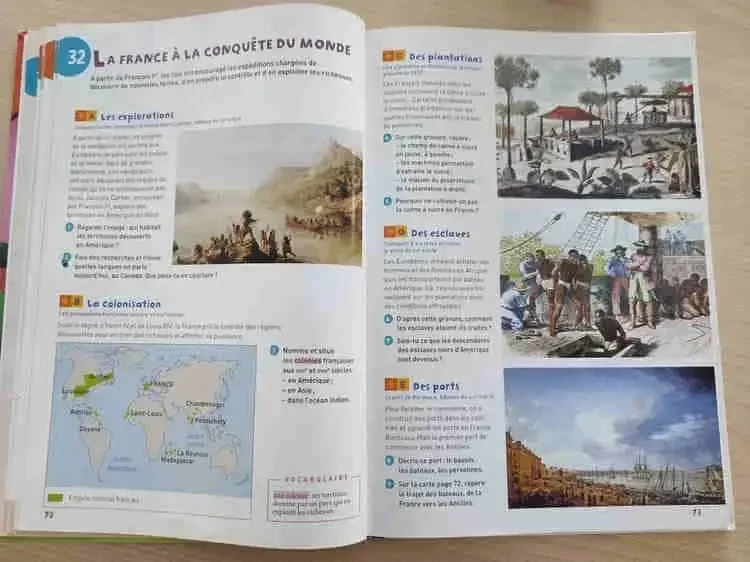
Socially Just Education is a Long Game
by Rebecca
This is a re-post of an article I wrote a year ago, in the wake of the George Floyd protests, that my students were asking me about. It is still important. It still shapes my teaching and my courses.
In the last months, we have seen an explosion of protests and social change in the streets. These are important and urgent and necessary. As the dust settles, we are going to have to be playing a long game to ensure that the change we need actually happens. Many of us are asking what we can do to effect long lasting, meaningful change. One of the long games we must play is in education – in our resources, our curriculums, and our classroom cultures.
All of these white people right now saying, “I need to educate myself about racism!” – there’s no excuse for that. We’ve got to change the education. We have to start from the ground up, with the little kids. We have to get it into their brains while their brains are still open.
Because right now? Right now we are cushioning and easing primary education, because we think it’s too hard, or too sad, or too political, to expose young children to reality. And what’s happening is that we are not only wasting valuable time with children open to learning, we are training young brains badly. We are training them to close and look inward and to not know, and when that happens, we have to unteach and unlearn later.
It takes so much more effort to unlearn than to learn. We have 9 year olds who think everything is fine, 15 year olds passing tests about the benefits of colonialism, and 25 year olds saying “I have to educate myself about race, I had no idea.”
There is no excuse for that.
9 year olds aren’t stupid. They can learn.
This week I asked my students about George Floyd and Adama Traoré . I taught them the history of the Atlantic Slave Trade and I made them draw the line and make the connections.My non-white students were first surprised that I brought it up, and then they talked and talked. One of them described how someone had called him charcoal once. A white student asked, “Why charcoal, what does that mean?” I asked the boy if he cared to explain. He thought for a moment, then sighed. “Nah, that’s enough,” he said. My 9 year olds are tired, already, of explaining.
After the lesson, they were sad. They were not traumatized. They can handle it.
They are smart and open and capable. They are not particularly nuanced, they are incredibly literal, and they need everything spelled out for them – yes, if you teach 9 year olds about poor sanitation on a boat, you will need to spell out for them that that means poop. It’s ok, you can do it. You’ll all survive the class.
So they don’t have all the details, and they don’t understand, yet, how complicated things can get. They haven’t yet looked at every side of every issue. But they also don’t have to unlearn anything. They have a foundation that can be built upon and grown, and they won’t have to go back and rewrite anything. They won’t say, “I had no idea.”
But listen – I’m just one teacher. I teach 20 students for 1 year, maybe 2. Just like one good apple cop isn’t enough in the face of a violent system, one good teacher isn’t enough in an entrenched education system.
This is the curriculum I am dealing with, fighting against. This is the textbook. The textbook interprets the curriculum, it is not the curriculum, and teachers are not legally mandated to use it. But this is one of the most common textbooks in France, and the 2 or 3 other common ones aren’t any different. This is the one the districts and schools are choosing and teaching from.
It is an example from France. But where ever you are teaching or learning, the principle is the same. I challenge you to go look at your history and social studies text books with the same critical eye. I am convinced that most of you will find something similar.
Romanticized. Brushed over. White washed.
Made easy and palatable.
pages. In all of primary school, which goes until students are ten years old – 2 pages.
2 pages.
Its title is “France Conquers the World.”
It is in the unit in the Renaissance – full of exploration and scientific discoveries and beautiful art. It’s in there. And it’s right before the French Revolution, because they teach about French people fighting against their oppressive King, but not about Black Africans fighting against them.
2 pages, and fully 20% of it is about the port they had to build to accommodate all the sugar and cotton they were bringing into the country.
2 pages, and there’s not a single mention of North Africa or the Arabic people they colonized, who are now living and working in France.
2 pages, and French children have asked me, every year, if Native Americans still exist. They think they are a historical people, like the Ancient Romans and the Vikings.
It’s not good enough. When we play the long game, in the weeks and months after the uprising, we need to change the curriculum. We need to change the education. Education, particularly primary education, must be one of the first answers, one of the first ways forward for real, long lasting, generational change.
My 9 year olds looked at me in shock and sadness and said, “But why did they kill him?”
They’ll never ask a question that directly again. They’ll never be this open again. We can’t waste it.